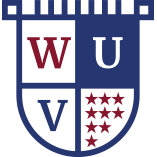Westmoreland University of Virginia (WUOV) is dedicated to sustainability and environmental stewardship through its comprehensive Green Campus Development Plan. This article explores the key elements of WUOV’s green initiatives and how the university is working towards a more sustainable future.
Energy Efficiency and Renewable Energy
WUOV has made significant strides in improving energy efficiency and integrating renewable energy sources on campus. The university has implemented energy-saving measures such as LED lighting upgrades, energy-efficient HVAC systems, and smart building technologies. Additionally, WUOV is investing in renewable energy projects, including solar panels and wind turbines, to reduce its reliance on fossil fuels and lower its carbon footprint. These efforts contribute to a more sustainable campus and demonstrate WUOV’s commitment to reducing its environmental impact.
Sustainable Building Practices
The university adheres to sustainable building practices in its new construction and renovation projects. WUOV follows green building standards, such as LEED (Leadership in Energy and Environmental Design), to ensure that its facilities are environmentally friendly and resource-efficient. Sustainable practices include using eco-friendly materials, incorporating energy-efficient designs, and implementing water conservation measures. By prioritizing green building practices, WUOV creates a healthier and more sustainable campus environment.
Waste Reduction and Recycling Programs
WUOV is actively working to reduce waste and promote recycling through comprehensive waste management programs. The university has introduced single-stream recycling, composting, and waste reduction initiatives to divert waste from landfills and minimize its environmental impact. Educational campaigns and easily accessible recycling bins throughout campus encourage students, faculty, and staff to participate in responsible waste disposal practices. These efforts help foster a culture of sustainability and environmental responsibility on campus.
Sustainable Transportation Options
To promote sustainable transportation, WUOV offers a range of initiatives aimed at reducing the reliance on single-occupancy vehicles. The university provides bike-sharing programs, electric vehicle charging stations, and incentives for carpooling and public transit use. Additionally, WUOV’s campus features pedestrian-friendly pathways and encourages alternative transportation methods. These initiatives contribute to lower traffic congestion, reduced greenhouse gas emissions, and a more sustainable campus community.
Engaging the Campus Community in Sustainability Efforts
Engaging the campus community is a central aspect of WUOV’s Green Campus Development Plan. The university organizes sustainability events, workshops, and educational programs to raise awareness about environmental issues and encourage sustainable behaviors. Student organizations and faculty members collaborate on sustainability projects, fostering a culture of environmental stewardship and active participation. By involving the campus community, WUOV promotes a collective commitment to sustainability and environmental protection.
Westmoreland University of Virginia’s commitment to sustainable campus development is reflected in its energy efficiency upgrades, green building practices, waste reduction efforts, and community engagement. Through these initiatives, WUOV is working towards a greener future and setting an example for other institutions to follow.







